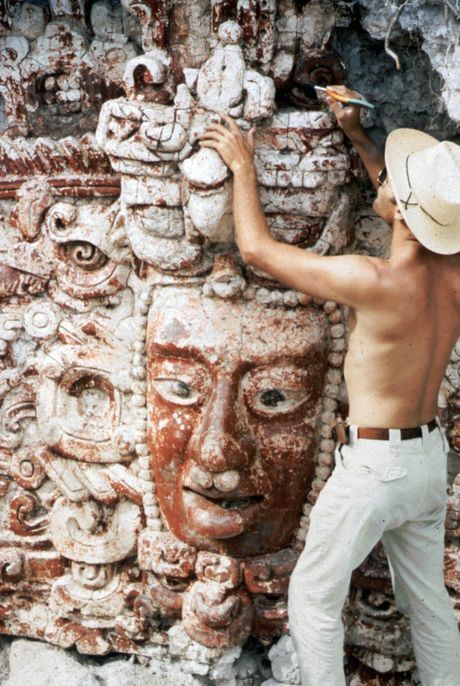
The statistic has appeared, in varying forms, in the Associated Press, European Commission reports and even Unesco documents: the illicit antiquities trade is purportedly the third largest illicit trade in the world. But prevalent as it is, the claim is an unfounded one that has endured for more than five decades, new research by two leading archaeologists reveals, and it has consequently made it harder to combat the trade.
The research, published in the peer-reviewed journal Antiquity, results from a deep investigation by its authors Donna Yates, a criminologist archaeologist who teaches at Masstricht University, and Neil Brodie, an archaeologist and senior research fellow at the University of Oxford, into the roots of the claim. The pair systematically traced it back to the 1970s, scouring the internet for its mentions and closely examining citations for an original source. “But we never hit bedrock as the claim has no solid foundation,” Yates and Brodie write. “The ‘third largest’ factoid is not based on any research ever conducted, any statistics ever collected, nor does it originate with any competent authorities.”
In most cases, they add, the chain of sources could be followed to no more than one or two references before ending in an unsourced claim published in the news or attributed to either Interpol or the FBI, but with no exact sourcing. Furthermore, the language of the claim has been inconsistent through the years: some people refer to the trade of stolen art; others, antiquities or the broader scope of cultural property. At times, it is applied to describe the trade’s dollar amount; elsewhere, its volume.
“The claim is so vague as to be useless,” Yates and Brodie write.
Their search turned up what they believe is the earliest recorded instance of the factoid, in a note in a 1974 Journal of Field Archaeology column that describes a letter by John H. Riley, the regional director of investigations of the US Treasury’s Bureau of Customs. Riley wrote that the “international traffic in art” is “believed to be second only to the traffic in narcotics”; neither he nor the journal provided additional sources. According to Yates and Brodie, the claim then appeared in the press for the first time in 1978, published in US News & World Report, and the following year it was printed by the Associated Press, which attributed the statistic to French police.
From there, the claim spread as experts published it in academic papers or gave quotes to the media about the illicit art or antiquities trade. Its language also evolved from “second” to “third”, a switch Yates and Brodie link to the 1995 book Antiquities: Trade or Betrayed, which gives no clear evidence for the claim. In 2016, Interpol repeated it on its website, despite having said elsewhere that computing the number of stolen cultural property worldwide is very difficult. The international organisation also began including the factoid in its official statements.
The stakes of all this misinformation are high, Yates and Brodie say, since it has appeared unchecked in policy development and can potentially misdirect policymakers, thereby leaving antiquities “poorly protected”. For example, they found that the factoid has been submitted by both the European Association of Archaeologists and Italian Carabinieri to the British Parliamentary, as well as appeared in reports by the European Commission. The commission has repeated the claim as recently as this past May, attributing it to Corinne Chartrelle, former deputy head of France’s Central Office for the Fight against Illegal Trafficking in Cultural Goods.
The task that Yates and Brodie set is clear: stop making this claim. Rather, they argue, those dedicated to combating the illicit trade in antiquities would do better to focus less on financial comparisons and rather on the real-world effects of looting.
“The idea that the severity of crime should be measured in comparative terms through monetary value rather than through harms to society is upsetting,” Yates and Brodie write. “We do not need to rank their illicit trade financially to render the social harms more damaging.”










